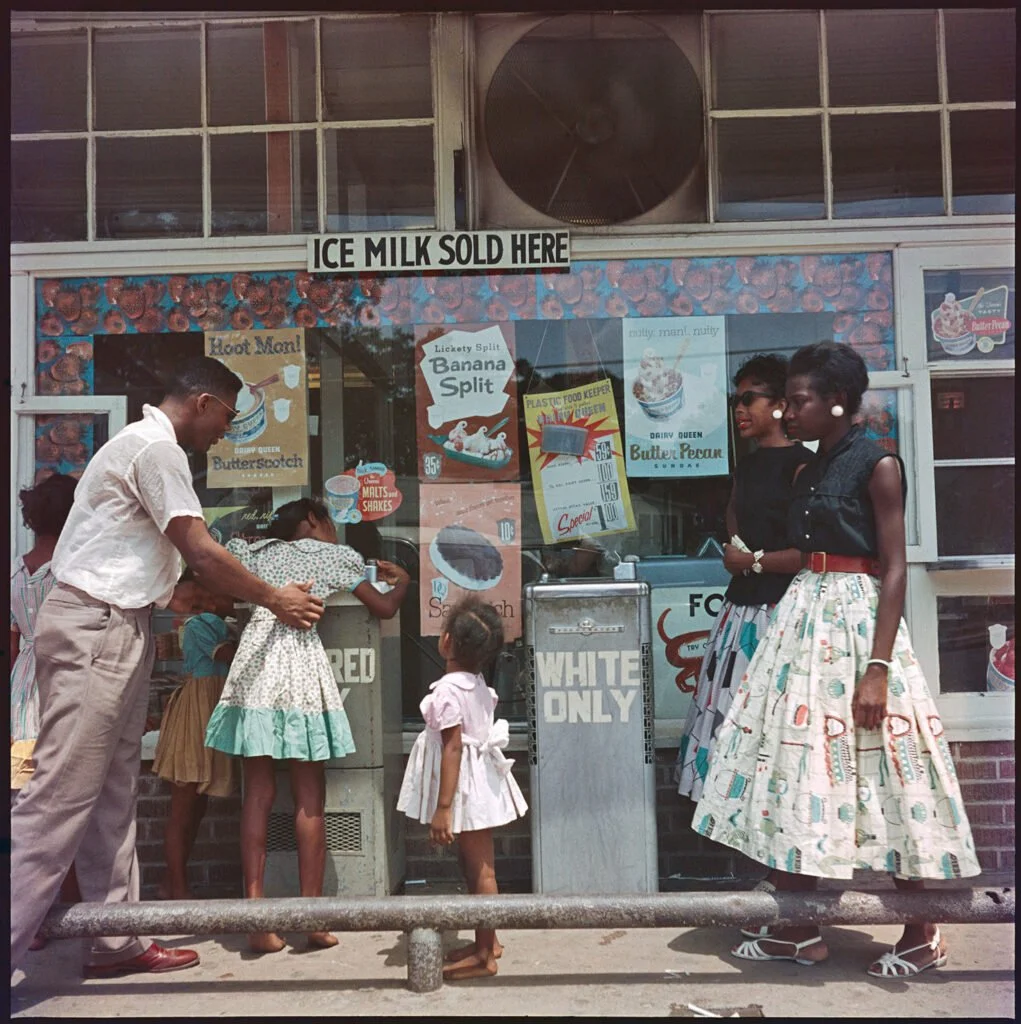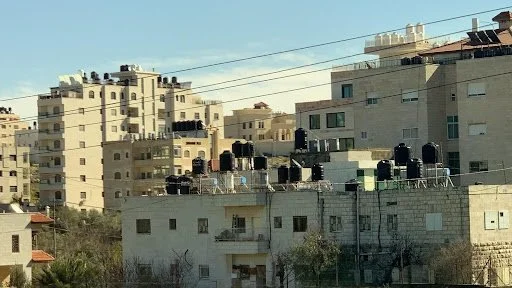Stitches, Sugar, and Puerto Rico
“If they come for me in the morning, they’ll come for you at night.”
-Angela Davis
Day 2
This summer is the year of migration and genealogy. In the sweltering heat of political tension, issues of migration in Chicago, and across the United States, there is a heat wave of ignorance and prejudice sweeping across Black and Brown communities. On Father’s Day, I told my father that I was attending the Puerto Rican parade in Humboldt park, and his first response was “so you think you’re Puerto Rican now?” Rather than falling for his guilt trip bait, I responded “ No entiendo ingles.” I then proceeded to speed to Division.
How do we address our prejudice?
First, let’s briefly talk about the shared history of sugar production in Louisiana and Puerto Rico. Puerto Rico became a territory of the United States in 1898, a consequence of the Spanish-American War, and included in the agreement known as the Treaty of Paris in 1898. As a result of U.S. occupation and military leader Charles Herbert Allen. The island of Puerto Rico became an island of exploitation, sugar production, and the origin of the American Sugar Refining Company. You know this company today as Domino sugar. Puerto Rican natives and workers are vulnerable to the violation of human rights yet, under the jurisdiction of a government intentional about the profitization of the commodity known as “sugar.”
What are the commonalities of Puerto Rican and African culture?
More than the vestiges of sugar cultivation, is a long history from artisanship to activism. Preserved wooden carvings, Congolese masks, and Kokabola coconut masks, and various forms of material culture that are shared between Taino Indians and Africans. While the congruency and creativity of indigenous and African cultures valued through artwork, the division and regurgitated prejudice widens the gap between W Division in Humboldt park across to Jeffery over East.
What are the continuities and connections of Puerto Rican and African American injustice?
History is not solely about the chronology of dates and facts, but the continuities and connections that stitch together patterns and through lines across geographical boundaries. For Chicago’s sake, our history stitches the open wounds of redlining and gentrification that have unravelled the seams of strength, self-determination, and sovereignty.The continuities of activism in Humboldt park and the West side of Chicago are found in the shared objectives of Cha Cha Jimenez and Fred Hampton. Jose “Cha Cha” Jimenez alchemized the Young Lords organization into a political group advocating for affordable housing, healthcare, food, and mobilizing power against gentrification. In the same light, the charismatic leader Fred Hampton, was persistently proactive in the care of the Black community, firmness against displacement, and persistence concerning food and housing initiatives. So how do we lose sight of the essence of efficacy across cultures? As high rises, tax increases, and sneaky Starbucks encroach upon the Woodlawn, South Shore, and Pilsen neighborhoods, don’t let your prejudice cloud your judgement and common interest against gentrification and displacement.
On the precipice of a 6 week pursuit of foods without refined sugar, the refinement and cultivation of eating habits continues. For the past seven days, I committed to writing in the morning about different variations of drinks and foods across Chicago.
Sorrel is a hibiscus flower-based drink also known as Bissap in Senegalese styles, Sobolo in Ghana, and Zobo in Nigeria. Each of the iterations is a sour and relaxing product of the flower known as Hibiscus Sabdariffa. You can also call it “roselle.” You can find the dried hibiscus flowers at Cermak produce.
According to Exploring the Health Benefits and Therapeutic Potential of Roselle in Human Studies, the roselle flower has anti-hypertensive, anti-inflammatory, and antimicrobial properties. After steeping in a tea pot for 10-15 minutes, the simplest way to enjoy the sour beverage is with a cinnamon stick, a table spoon of honey, and a pinch of lemon. Whether hot or iced, the substitute for drinks with heavy corn syrup and sugar content goes a long way.
“In a study involving a single male participant with hypertension, initially had a blood pressure of 180/20 mmHg and had not taken any prior anti-hypertensive medication at baseline, it was found that consuming a single serving of HS yea resulted in a reduction of both systolic and diastolic blood pressure to 150/100 mmHg.”
Alongside it’s cultural variations, the this one drink can be a medicinal mocktail for those looking for a sugary substitute or even a relaxing drink at the end of the day.
By Dawn Johnson
Day 1
Reflections of a Restless Writer
AAAM Conference 2025
This year every monumental occasion, family celebration, and milestone has been marked by the reductive nature of the Trump administration. The last of her generation in our family, my great Aunt, turned 88 years old on July 2nd. Along the table of laughs, hugs, vegan cake, and waffles, was the passing The Big Beautiful Bill.
In May, Dr. Carla Hayden, the first African American woman appointed as the Librarian of Congress, was removed from her position as a consequence of “opposing” Trump’s initiatives against accessibility to books considered “radical.” Libraries have been the cornerstone of equitable access to literature, respite, and research. The previous speaker at the Association of African American Museums conference in 2024, was now a pawn in the administration's incrementalism.
In January, in the planning stages of a co-curated and facilitated discussion with photographer Leslie and friend Jazmine Wright, over 80% of programs funded by the United States Agency for International Development USAID were disseminated and undermined.
This week, a fellow professional in San Antonio, Texas brought to light the removal of books and libraries in the state of Texas, supplemented by suspension and detention centers in schools.
Chambers of knowledge harnessed by once responsible and accomplished professionals, have quickly been irrevocably overturned by our current leaders. If the urgency has not kicked in or the realization has not pierced your membrane, American people are not far removed or exempt regardless of our regions.
So the inquisition of how do we carry the co-existence of a painful lived history and protect our joys of our present moments?
At the reception of AAAM’s 60th anniversary of the Voting Rights Act, hosted at the International Museum of African American History in South Carolina, Dr. Tonya Matthews stated “ we’ve always carried joy and trauma.” In my eyes, it is the unwavering, intrinsic, and God sustained joy we carry across generations.
Every year the AAAM conference is a reminder of the curators and craftsmen, elders and educators, preservationists and protectors, speakers and silent room shakers that commit to replenishing the soil for current and forthcoming professionals.
As we commemorate the 60th anniversary of along the coastal waters of Charleston, SC where over 40% of enslaved individuals arrived in their slave ports, there is a reminder of the sustained joy and collective responsibility that traverses across the country amongst African American museum professionals. As we continue to keep a finger on the pulse, the joy and intergenerational responsibility is carried in my capacity for preparation for immediate and future alternatives.
By Dawn Johnson
Founder of Quotidian
We Cannot Be Satisfied
Parallel to this system of discrimination, Palestinians find themselves exiled, bombed, starved, and killed in masses on their own land. So as we move across chronologies and contexts what are the parallels and patterns missing in the quotidian of our newsfeed?
A colleague of mine, Jessica Clark, travelled to Palestine in January of 2017. As a student and emerging brand strategist, this would be her first time travelling to the Eastern Mediterranean region. Shown in the image below, the black and white water tanks distinguish Palestinians limited water access and rooftop reminders of land fragmentation. The distinguishable Black water tanks that covered Palestinian roofs are the continuities of said segregation through fragmentation of land. By doing so, I am in greater pursuit of recognizing the cataclysmic patterns that can lead up to genocide prior to the memorialization of the individuals whose warnings and voices will not stay under the rubble.
When we name continuities, we fuel the flames of urgency that address these symptoms: attacks on food sovereignty, segregation, and scapegoating. Similar to the field of public health, preventative strategies of nutrition, environment, and education make more impact than treating the disease or injury after it has manifested.
Water & Food Sovereignty
So where do we start? Let’s begin with the basic human rights of food and water. Since 1967, Israel has maintained control over a disproportionate amount of water sources. This includes Syria, Lebanon, and Palestine.What we cannot see as visibly as bombs is the geopolitical instability caused by limited water access. To restrain people from the basic needs such as water is a symptomatic principality of discrimination that the African American community is far too familiar with. It impacts agriculture, stability, trade, and public health. Yet, it doesn’t make the headlines until the symptoms fester.
The analysis of these issues are like a fermentation in a vinegar of urgent concerns. The acquired taste for scapegoating marginalized groups as if they are the root of an issue rather than the symptom of systematic principles of discrimination leave a bitter taste. Today, the amount of U.S. children facing the lack of food sovereignty can be found in Annie E. Casey Foundation. From 2021 to 2022, children in the thick of “food insecurity” rose from 521,000 to 780,000. While these exponential rates are heart-wrenching, the taste of the comparative experiences in Palestine are unavoidably bitter.
According to the United Nations, over half a million people are headed into phase 5 of starvation which is “marked by starvation, death, and destitution.” https://news.un.org/en/story/2025/07/1165517
When we turn a blind eye to our nation's disregard, and undeniable starvation tactics, we extinguish the urgency to act against the ills that plague our global society. In a world that is determined to be desensitized, the characteristics of genocide demand our empathy, attention, and creative pursuits.
End With The Beginning
In 2023, Joe Biden proclaimed in his public address to the October 7th terrorist attacks“ Nations of conscience like the United States and Israel are not measured solely by the example of their power. We’re measured by the power of our example.”
After getting off the train near the Brooklyn bridge in 2023, my first chopped cheese was accompanied by my first protest in the city of New York. As leaders called for Biden’s accountability, crowds of people gathered to listen. As casual as COVID-19 shots, accessible as algorithms of malnourished children, and places of food insecurity have become, so have the casual nature of Palestinian casualties.
So if there is a question at all of what you can do, you can begin with unravelling the the reality that we cannot become desensitized or comfortable with the our nations hand in funding genocide. Equally as important, taking the charge to have the difficult conversations with your community about the parallels of oppression that impact us directly and indirectly.
The example of our nation's hypocritical principles and rhetoric have become propaganda and distraction to the urgency of basic principles of humanity. So if this leaves you with a bitter taste, savor it. Floss out the propaganda of patriotism covered in the name of manipulated Christianity. Scrape off the misinformation and desensitization coated on your tongue. Hydrate with handheld books, read, and indulge in credible information. You’ll need a clean palate to acquire the taste for truth and urgency.
When did we acquire the taste for separate but equal? Domestic or abroad. The issues are interrelated not a hierarchy of oppressions to prioritize.
Published October 22, 2025
By Dawn Johnson




